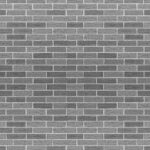
Quartz stone countertops have become increasingly popular for their stunning aesthetics, durability, and low-maintenance characteristics. Unlike natural stone surfaces, quartz countertops are non-porous, which means they are resistant to staining and require minimal upkeep. However, to keep them looking pristine and extend their lifespan, it’s essential to know how to clean quartz countertops properly. In this article, we’ll provide a comprehensive guide on how to clean your quartz stone countertops.
Materials You’ll Need For Home
Before we delve into the cleaning process, gather the following materials:
Warm water
Mild dish soap
Soft, non-abrasive cloth or sponge
Paper towels or a clean, dry cloth
Glass or surface cleaner (optional)
Plastic scraper or putty knife (for stubborn stains)
Isopropyl alcohol (70% or higher)
Hydrogen peroxide
Baking soda
Start with a Gentle Cleaning Solution:
The best way to clean your quartz countertops on a daily basis is to use warm, soapy water. Create a simple cleaning solution by mixing a few drops of mild dish soap with warm water. Avoid using harsh or abrasive cleaners, as they can dull the surface and cause damage. Use a soft, non-abrasive cloth or a sponge to apply the soapy solution to the countertops.
Wipe the Surface
Gently wipe down the quartz surface with the soapy cloth or sponge, ensuring that you cover the entire area. Pay special attention to any visible stains or spills. Wipe in a circular motion to avoid streaks and rinse the cloth or sponge frequently to prevent residue buildup.
Rinse Thoroughly
After cleaning, rinse the countertops thoroughly with a clean, damp cloth or sponge. Ensure that all soapy residue is removed to prevent a filmy or sticky residue on the surface.
Dry the Countertops
Dry the quartz countertops with paper towels or a clean, dry cloth. Make sure the surface is completely dry to prevent water spots or streaks.
Remove Stubborn Stains
For stubborn stains or dried-on spills, you may need a bit more elbow grease. Here are some methods to tackle specific types of stains:
Ink, Wine, or Juice Stains: Mix a small amount of hydrogen peroxide with a few drops of dish soap and apply it to the stained area. Gently scrub with a soft cloth or sponge and rinse thoroughly.
Grease or Oil Stains: Create a paste by mixing baking soda with a small amount of water. Apply the paste to the stained area and let it sit for a few minutes. Then, gently scrub and rinse with warm water.
Permanent Marker or Paint Stains: For stubborn stains like permanent marker or paint, use a plastic scraper or putty knife to gently remove the residue. Be careful not to scratch the surface, and rinse thoroughly after removal.
Disinfect the Countertops
If you want to disinfect your quartz countertops, you can use isopropyl alcohol (70% or higher). Dampen a soft cloth with the alcohol and gently wipe down the entire surface. Ensure the countertops stay wet with the alcohol for at least 30 seconds to effectively disinfect. Rinse the surface thoroughly after disinfecting.
Polish for a Shine
While quartz countertops don’t require sealing, you can give them a beautiful shine by using a glass or surface cleaner specifically designed for quartz. Follow the manufacturer’s instructions for the cleaner, spray it on the surface, and wipe it off with a clean, dry cloth.
Additional Tips for Quartz Countertop Care
Avoid Abrasives: Never use abrasive cleaners or scouring pads on quartz countertops, as they can damage the surface.
Protect from Heat: Although quartz is heat-resistant, it’s advisable to use trivets or hot pads for placing hot cookware or appliances on the surface.
Use Cutting Boards: To prevent scratching, always use cutting boards when chopping or preparing food.
Avoid Harsh Chemicals: Steer clear of harsh chemicals like bleach, acetone, or concentrated acids, as they can harm the surface and its shine.
Blot Spills Immediately: Wipe up spills as soon as possible to prevent staining. While quartz is stain-resistant, it’s best to avoid letting liquids sit for an extended period.
Practice Caution with Colored Liquids: Be especially cautious with dark, concentrated liquids like red wine or black coffee. Although quartz is less prone to staining, it’s still a good practice to clean up spills promptly.
Regular Maintenance: Routine cleaning is key to maintaining the beauty of your quartz countertops. Make it a part of your daily or weekly cleaning routine to ensure that your countertops remain pristine.
Conclusion
Quartz stone countertops are known for their beauty and low-maintenance characteristics. By following these simple steps and tips, you can keep your quartz countertops looking as good as new for years to come. Regular cleaning and gentle care will preserve the luster and extend the lifespan of your countertops, making them an excellent investment for your home.








